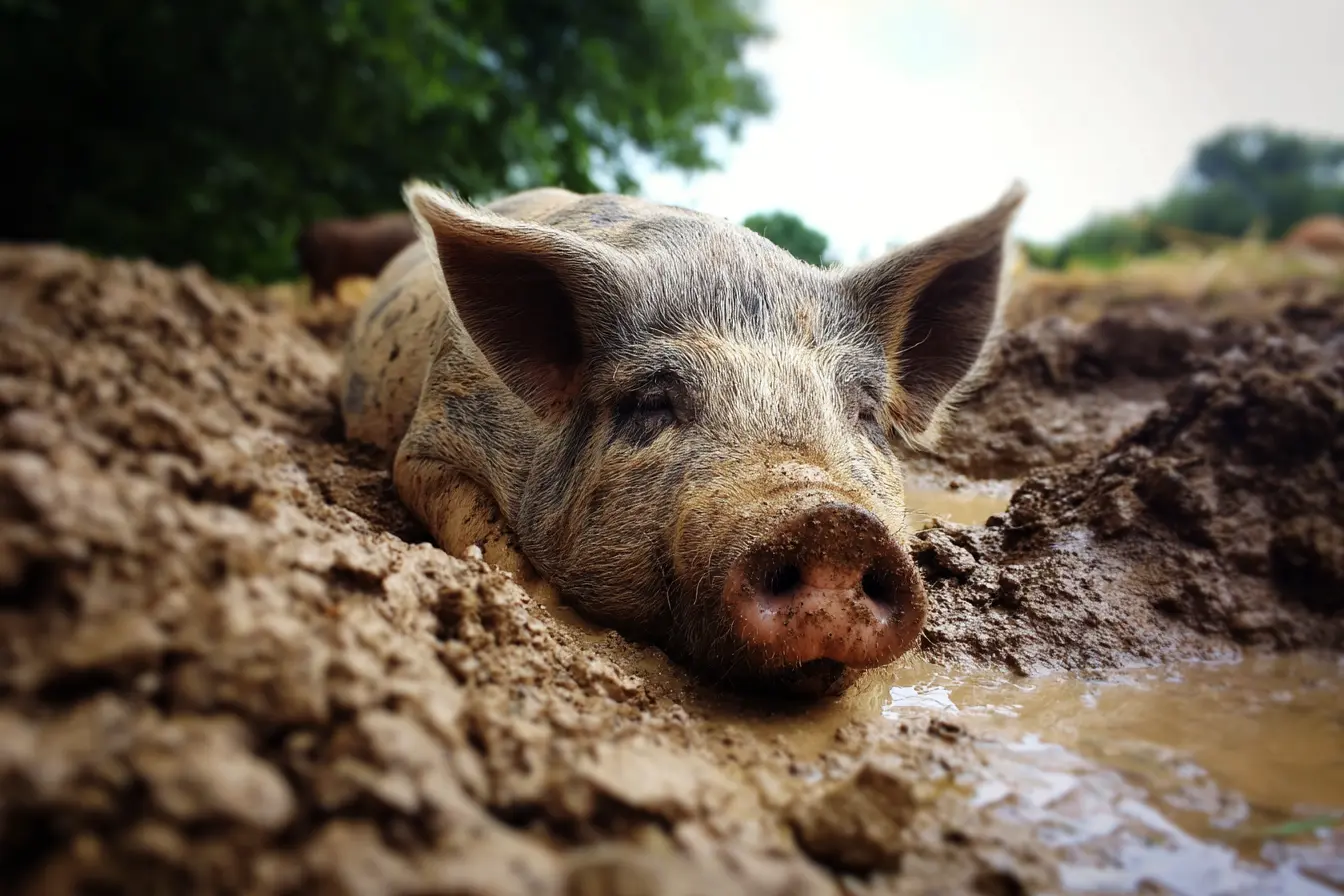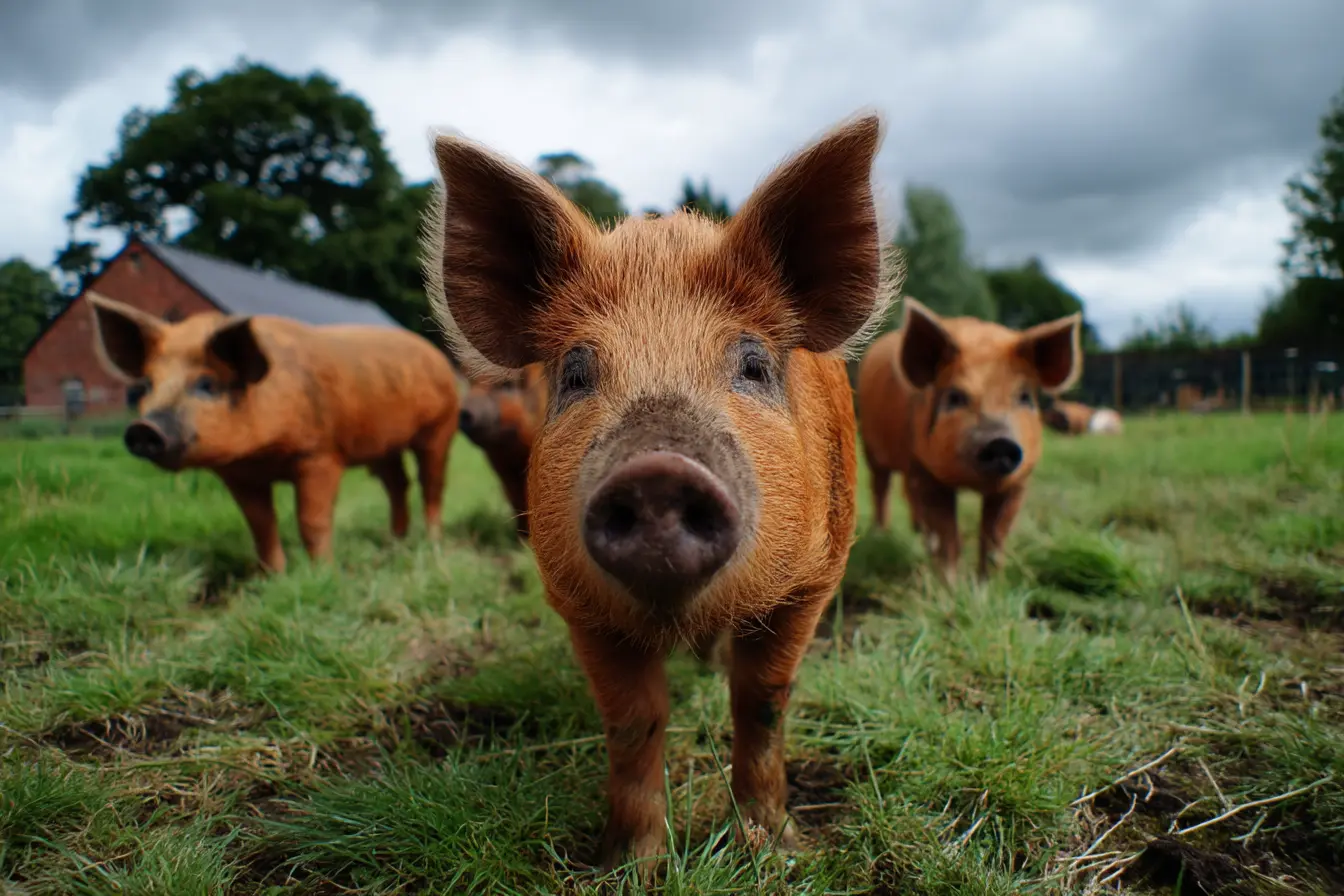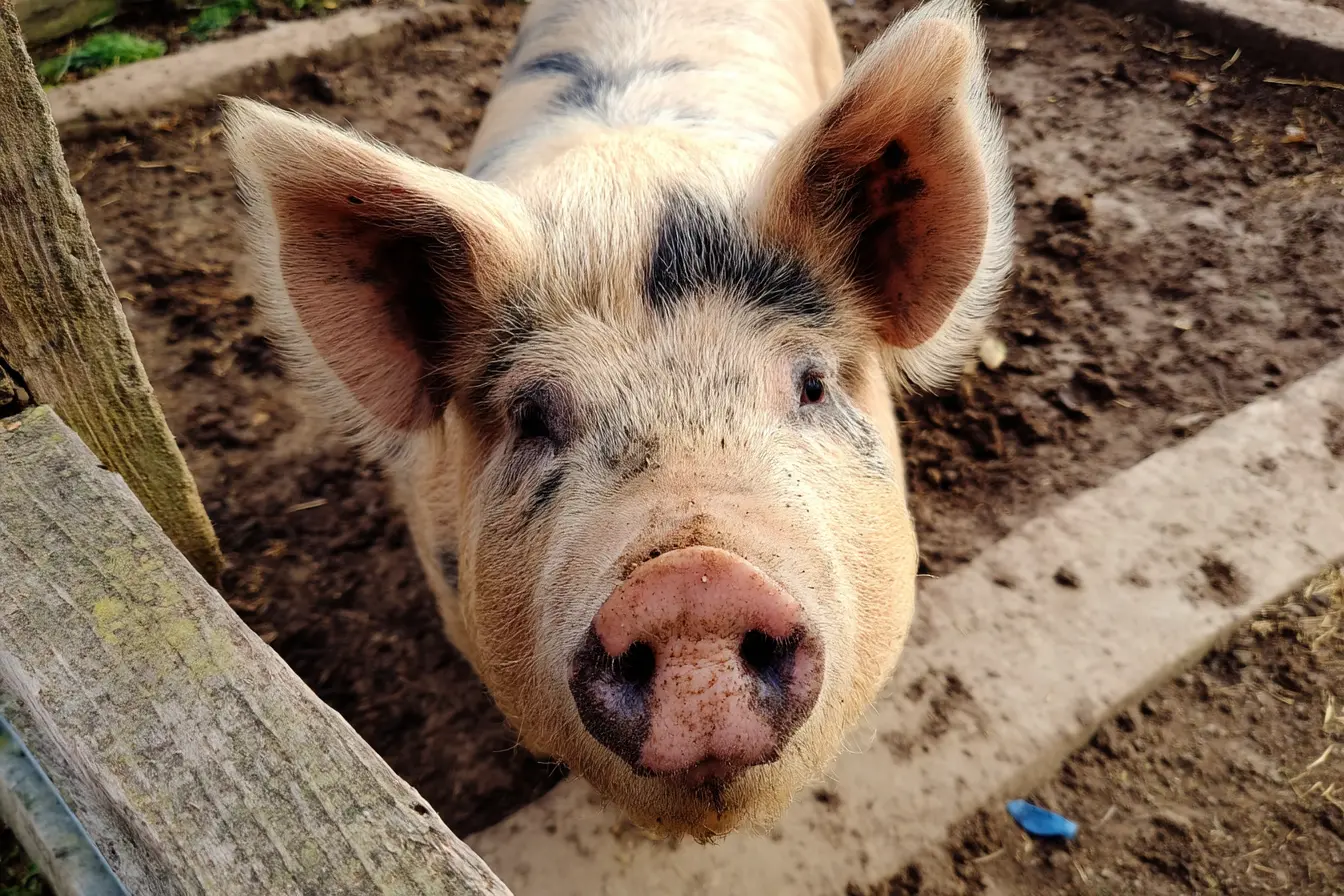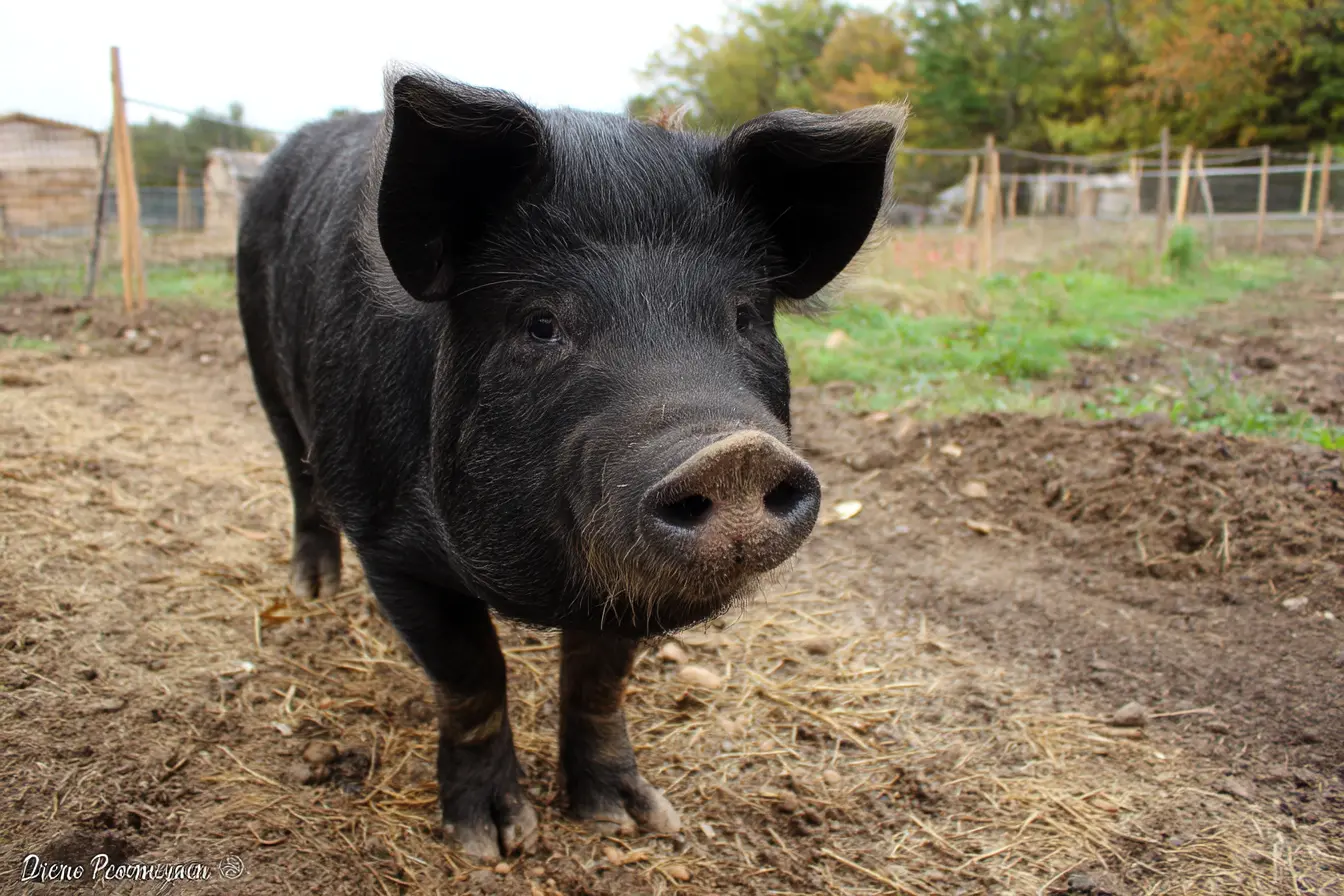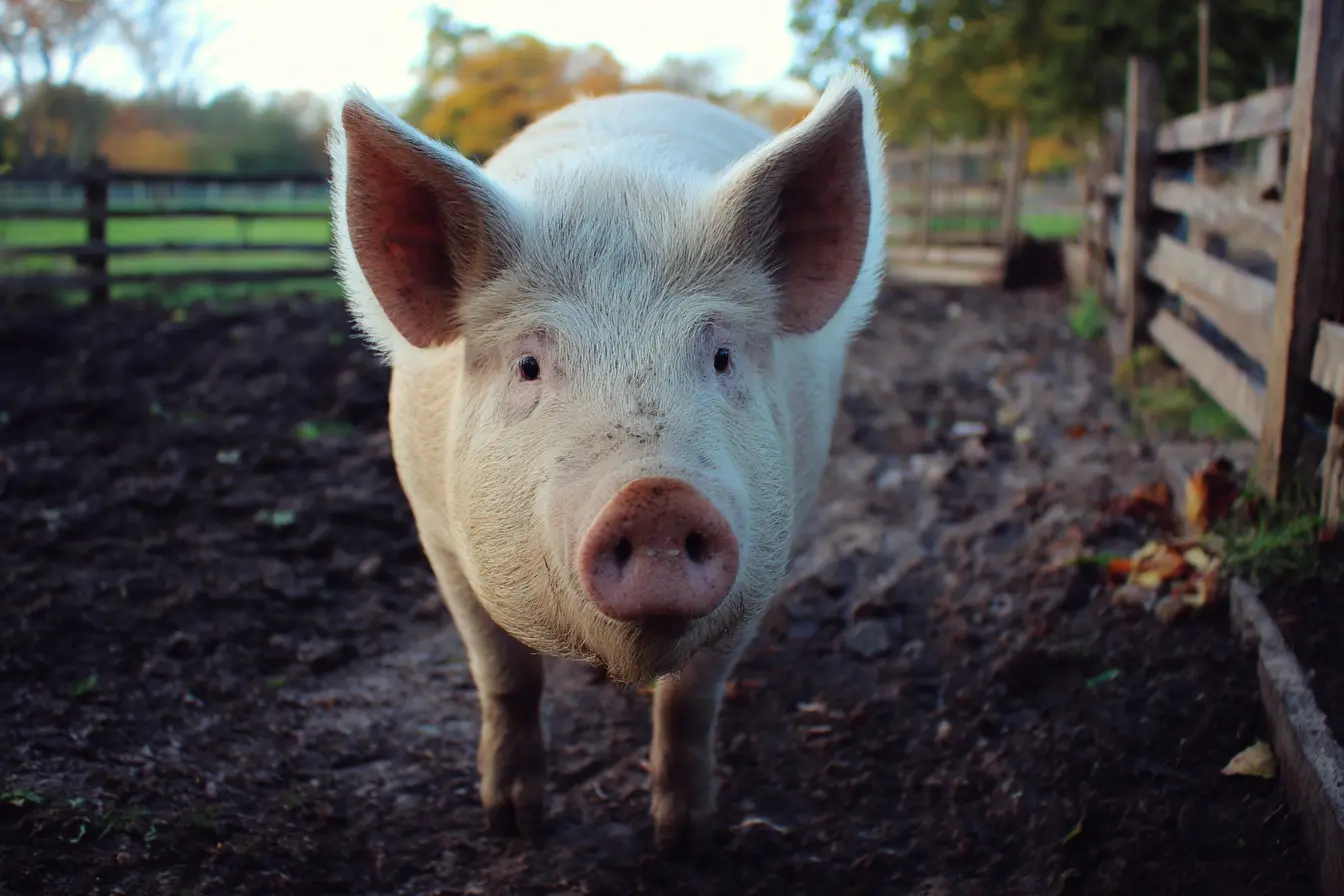
A Complete Guide to Caring for Large White Pigs
Large White pigs are one of the most popular pig breeds worldwide, known for their adaptability, excellent growth rates, and high-quality meat production. Originally from the UK, they are a common choice for commercial farms and smallholders alike due to their hardiness and versatility in both indoor and outdoor systems.
If you’re considering keeping Large White pigs, this guide will provide you with everything you need to know about caring for this breed, including housing, feeding, breeding, and general health care.
A Brief History of Large White Pigs
The Large White pig breed originated in Yorkshire, England, in the mid-19th century and was initially known as the "Yorkshire Pig." Over time, the breed gained popularity for its large frame, strong constitution, and high-quality pork production.
Large White pigs became a foundation breed in modern pig farming and are often used in breeding programmes to improve other breeds due to their fast growth rates, excellent meat quality, and mothering abilities.
Key Characteristics of Large White Pigs
Large White pigs are known for their distinctive appearance and useful traits that make them a popular breed for both meat production and breeding programmes.
- Size: Large. Mature boars can weigh up to 350kg, and sows can weigh around 300kg.
- Coat: White with a fine, straight coat. Their skin is pink, and they are prone to sunburn, so they require protection from harsh sunlight.
- Ears: Upright ears, giving them an alert appearance.
- Temperament: Generally docile and easy to handle.
- Meat Quality: Produces lean, high-quality pork with a good balance of fat and muscle.
Housing for Large White Pigs
Large White pigs can be kept in both indoor and outdoor systems, but their pink skin makes them more vulnerable to sunburn, so it’s important to provide adequate shelter and shade if they are kept outdoors.
Shelter Requirements
- Outdoor Housing: Provide a sturdy, weatherproof shelter such as a pig ark or hut to protect pigs from rain, wind, and extreme temperatures. Ensure the shelter is large enough to accommodate the size of the pigs and has adequate ventilation.
- Indoor Housing: If keeping Large Whites indoors, ensure the building is well-ventilated, dry, and spacious. Provide clean bedding such as straw or wood shavings.
Fencing
- Secure Fencing: Large White pigs are strong animals that can push through weak fences. Use sturdy post-and-rail fencing or electric fencing to keep them secure.
- Shade: If keeping pigs outdoors, ensure they have access to shaded areas to prevent sunburn and heat stress.
Feeding Large White Pigs
Large White pigs are fast-growing animals that require a well-balanced diet to maintain healthy growth and productivity.
Diet
- Commercial Pig Feed: Provide a high-quality pig feed that contains essential nutrients such as protein, fibre, and vitamins.
- Foraging: If keeping pigs outdoors, allow them to forage for grasses, roots, and other natural foods to supplement their diet.
- Fruits and Vegetables: You can offer fresh fruit and vegetable scraps as part of their diet, but avoid feeding anything toxic or spoiled.
Water
- Pigs need constant access to fresh, clean water. Large White pigs drink significant amounts of water, particularly in warm weather or when consuming dry feed.
Breeding Large White Pigs
Large White pigs are often used in breeding programmes due to their excellent mothering abilities and large litter sizes. They are also commonly crossbred with other breeds to improve meat quality and productivity.
Breeding Tips
- Age to Breed: Sows can be bred from around 8-12 months of age, while boars can be used for breeding from 12 months.
- Gestation Period: The gestation period for pigs is approximately 114 days (3 months, 3 weeks, and 3 days).
- Farrowing: Provide a comfortable, clean farrowing area for the sow to give birth. Large Whites are known for producing large litters and being attentive mothers.
Health Care for Large White Pigs
Keeping your Large White pigs healthy is essential for their wellbeing and productivity. Below are some key health care tips:
Vaccinations
Work with your vet to develop a vaccination schedule. Core vaccinations typically include:
- Erysipelas
- Porcine Parvovirus
- Leptospirosis
- Clostridial diseases
Deworming
Regular deworming is necessary to control internal parasites such as roundworms and lungworms. The frequency of deworming will depend on your farm’s specific conditions and your vet’s advice.
Common Health Issues
- Sunburn: Due to their light skin, Large Whites are prone to sunburn. Ensure they have access to shade or apply sunblock if necessary.
- Heat Stress: Large White pigs can be prone to overheating in warm weather. Provide plenty of shade and fresh water, and consider using sprinklers or wallows to help them cool down.
- Foot Care: Regularly check their hooves for signs of overgrowth or injury.
- Overgrown Tusks: Boars may develop overgrown tusks, which can cause injury. Regular trimming may be required.
Behaviour and Handling
Large White pigs are generally docile and easy to handle, making them a suitable breed for new pig owners. However, they are also strong animals, so it’s important to handle them safely.
- Calm Approach: Approach your pigs calmly to avoid startling them.
- Positive Reinforcement: Use food as a positive reinforcement to build trust and encourage cooperation.
- Training: Pigs are intelligent animals that can be trained to follow basic commands and respond to their names.
Why Choose Large White Pigs?
There are several reasons why Large White pigs are a popular choice among farmers and smallholders:
- Adaptability: Large Whites can thrive in both indoor and outdoor systems.
- Fast Growth Rates: They grow quickly and efficiently, making them ideal for meat production.
- Excellent Breeding Stock: Large Whites are often used in crossbreeding programmes to improve the productivity and quality of other breeds.
- High-Quality Meat: They produce lean pork with good marbling and excellent flavour.
Final Thoughts
Large White pigs are a versatile and productive breed that can thrive in a variety of farming systems. Their fast growth rates, excellent meat quality, and strong mothering abilities make them a valuable addition to any farm or smallholding.
By providing proper housing, a balanced diet, and regular health care, you can ensure your Large White pigs remain healthy and productive. Always work closely with your vet to establish a health management plan and enjoy the rewarding experience of raising this popular and historic British breed.
Vets near you
Speciality vets
- Aquatics vet specialists
- Birds vet specialists
- Camelids vet specialists
- Cats vet specialists
- Cattle vet specialists
- Deer vet specialists
- Dogs vet specialists
- Equines vet specialists
- Exotic vet specialists
- Goats vet specialists
- Pigs vet specialists
- Poultry vet specialists
- Sheep vet specialists
- Small Mammals vet specialists
- Wild vet specialists
Vet facilities
- Accessible by public transport
- Blood testing
- Car park nearby
- Client car park
- Dentistry
- Diagnostic imaging
- Disabled public access
- Flea and worm treatments
- Microchipping
- Mobile services
- Neutering
- Open at weekends
- Out-of-hours service
- Referral interests
- Referrals only
- Street parking outside
- Toilets available
- Vaccinations
